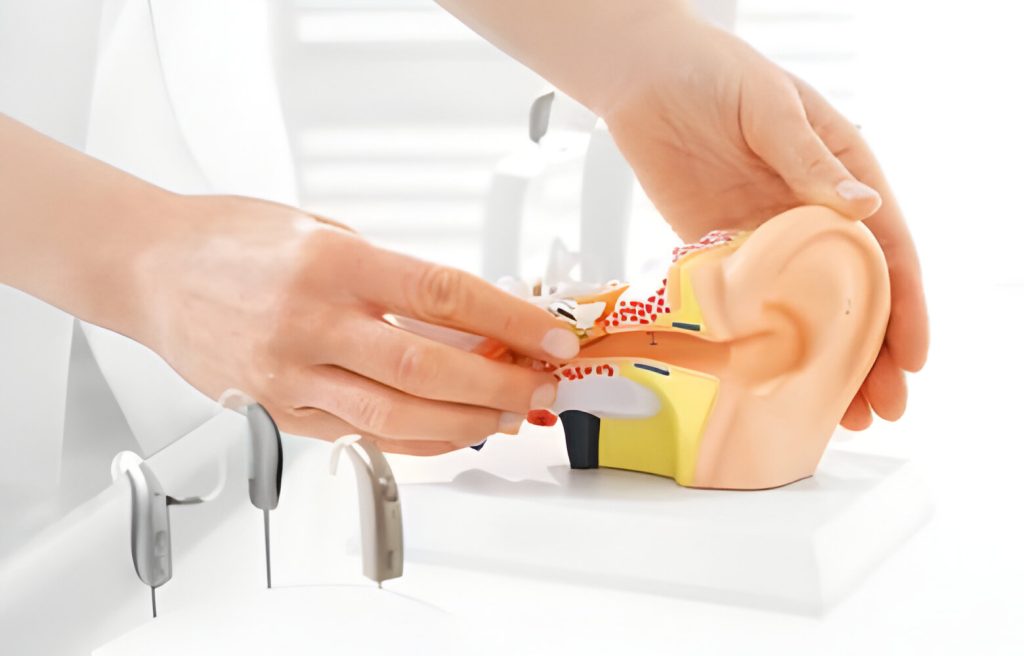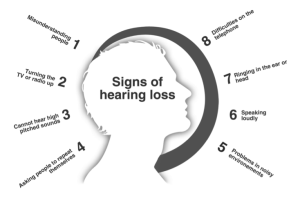
Best Audiologist in Dubai
Audiology: Enhancing Your Hearing Health
What is Audiology?
Audiology is the branch of science dedicated to the study of hearing, balance, and related disorders. The term comes from “audio” meaning hearing, and “logy” meaning the study. Since the inner ear plays a key role in balance as well, audiology also addresses vestibular (balance) issues.
Audiologists are specialists who evaluate, manage, and rehabilitate individuals with hearing or balance problems. They use a variety of testing methods such as hearing tests, otoacoustic emission measurements, videonystagmography, and electrophysiologic tests to determine the extent and type of hearing loss. These tests help identify which frequencies (high, middle, or low) are affected and the degree of impairment.
Based on these evaluations, audiologists recommend the most suitable solutions, which may include hearing aids, cochlear implants, or medical referrals. They also provide rehabilitation and support for patients of all ages, including those with tinnitus, auditory processing disorders, or vestibular (balance) disorders.
Dr. Muhammad Jabbr, a leading audiologist in Dubai, brings both expertise and compassionate care to his patients, ensuring personalized treatment plans tailored to each individual’s hearing and balance needs.
Causes of Hearing Loss
Hearing loss can stem from various factors and conditions, including:
- Aging: Age-related hearing loss, known as presbycusis, is a common occurrence as individuals grow older.
- Noise Exposure: Prolonged exposure to loud noises, whether occupational or recreational, can damage the delicate structures of the inner ear.
- Genetics: Inherited genetic mutations can predispose individuals to hearing loss.
- Ototoxic Medications: Certain medications can have harmful effects on hearing function.
- Trauma: Head injuries or sudden loud noises can result in immediate or gradual hearing loss.
Understanding the underlying causes of hearing loss is crucial for effective diagnosis and treatment planning.
Signs of Hearing Loss
Recognizing the signs of hearing loss is essential for early intervention and improved outcomes. Common indicators of hearing impairment include:
- Difficulty understanding speech, especially in noisy environments.
- Asking others to repeat themselves frequently.
- Turning up the volume on electronic devices.
- Feeling fatigued or stressed from straining to hear.
- Social withdrawal due to communication challenges.
If you are experiencing any hearing symptoms, book your appointment for hearing loss treatment in Dubai with Dr. Muhammad Jabbr. Act early to protect and improve your hearing!

Audiological Services
Faqs
Hearing loss is commonly described in five stages:
-
Mild Hearing Loss (Stage 1)
Decibel range: 25–34 dB
- Difficulty hearing soft consonants, whispers, or quiet sounds (e.g., dripping water, a ticking clock).
- Conversations in noisy places may be hard to follow.
-
Moderate Hearing Loss (Stage 2)
Decibel range: 35–49 dB
- Following most conversations requires effort.
- Phone calls and group discussions become challenging.
- Hearing aids are usually recommended at this stage.
-
Moderately Severe Hearing Loss (Stage 3)
Decibel range: 50–64 dB
- Most sounds are hard to hear without hearing aids.
- Conversational speech, even at normal volume, is difficult to understand.
-
Severe Hearing Loss (Stage 4)
Decibel range: 65–79 dB
- Conversational speech is mostly inaudible.
- Loud sounds (e.g., baby crying, television) may be missed.
- Powerful hearing aids are often required.
-
Profound Hearing Loss (Stage 5)
Decibel range: 80 dB or higher
- Very little or no hearing without powerful hearing aids or cochlear implants.
- Communication often relies on lip-reading, sign language, or other non-auditory methods.
The 60–60 rule:
- Keep headphone/device volume at no more than 60% of maximum.
- Limit listening sessions to 60 minutes before taking a break.
Following this guideline significantly reduces the risk of noise-induced, permanent hearing damage.
With Dr. Muhammad Jabbr — what to expect:
Duration: Typically 30 minutes to one hour.
Typical steps:
-
Discussion about lifestyle and work
Questions about frequent noises and daily activities. -
Hearing difficulties and medical history
Review of past ear problems and general medical history. -
Ear examination
A physical check to spot any treatable causes. -
Hearing test (Pure-Tone Audiometry)
- Performed in a soundproof room with headphones.
- You press a button when you hear a tone — painless, ~15 minutes.
- Produces an audiogram (a graph showing hearing sensitivity across pitches for each ear).
-
Additional tests (if needed)
Extra assessments may be performed depending on the suspected type of hearing loss.
After the test: Results are available immediately. Dr. Jabbr will review findings, discuss next steps, and advise on treatment or hearing-device options.
Age-related hearing loss (presbycusis) is a gradual decline that typically affects both ears. It can begin as early as a person’s 30s or 40s and usually worsens slowly over time.
Diet and hearing health — overview
Foods to eat:
- Vitamin B12: meat, eggs, dairy, poultry — supports nerve health and balance.
- Folate (B9): spinach, broccoli, beans, asparagus — improves blood flow to the inner ear.
- Omega-3 fatty acids: salmon, walnuts, chia, flax — supports ear cell function and lowers risk of age-related loss.
- Magnesium: bananas, potatoes, leafy greens — protects inner ear cells from noise damage.
- Zinc: pumpkin seeds, cashews, dark chocolate — supports immune response and tissue healing.
- Potassium: bananas, yogurt, tomatoes — helps maintain inner-ear fluid balance.
Foods to avoid or limit:
- Processed foods high in sodium (can cause fluid retention in the ear).
- Excess sugar and artificial sweeteners (may increase inflammation).
- Fried and high-fat meats (can affect circulation).
- Processed cheeses, margarine (often contain unhealthy hydrogenated oils).
- Refined carbohydrates/white-flour products (lack nutrients that support hearing).
- Vegetable oils very high in omega-6 — prefer healthier oils like olive or canola.
In short: A diet rich in fresh fruits, vegetables, fish, nuts and whole grains — and low in processed, salty and sugary foods — supports better hearing and ear health.
Leading cause: Exposure to loud noise (noise-induced hearing loss) is the most common acquired cause, affecting a large portion of people with hearing difficulties.
Prevention tip: Limit exposure to loud sounds and use hearing protection (earmuffs/earplugs) when needed.
Untreated hearing loss can lead to:
- Decline in mental sharpness
- Increased risk of dementia
- Impaired memory
- Feeling left out of conversations
- Reduced social interaction
- Anxiety
- Increased mental strain and cognitive load
Addressing hearing loss early improves quality of life and helps prevent these complications.
After diagnosis with Dr. Muhammad Jabbr:
Dr. Jabbr will explain the type and likely cause of your hearing loss and discuss the degree (Normal, Mild, Moderate, Severe, Profound) based on your audiogram.
Typical next steps:
- Discussion of management options (often hearing aids for many patients).
- Hearing aid consultation and fitting — modern devices are discreet and customizable.
- Taking an ear impression (a painless process to make a custom earmold) if required.
- Fitting and programming of hearing aids when appropriate.
- If further evaluation or medical/surgical care is required, Dr. Jabbr (as an ENT surgeon) can provide advanced assessment and treatment options.
Bottom line: Diagnosis opens the path to tailored rehabilitation — from hearing aids to medical or surgical care when indicated.
Ready to Enhance Your Hearing?
If you or a loved one is experiencing hearing loss or seeking expert audiological care, schedule a consultation with Dr. Muhammad Jabbr. He is dedicated to providing personalized solutions that help you rediscover the joy of clear and vibrant hearing. To learn more about how audiology can improve your hearing experience, contact us today for a consultation.
